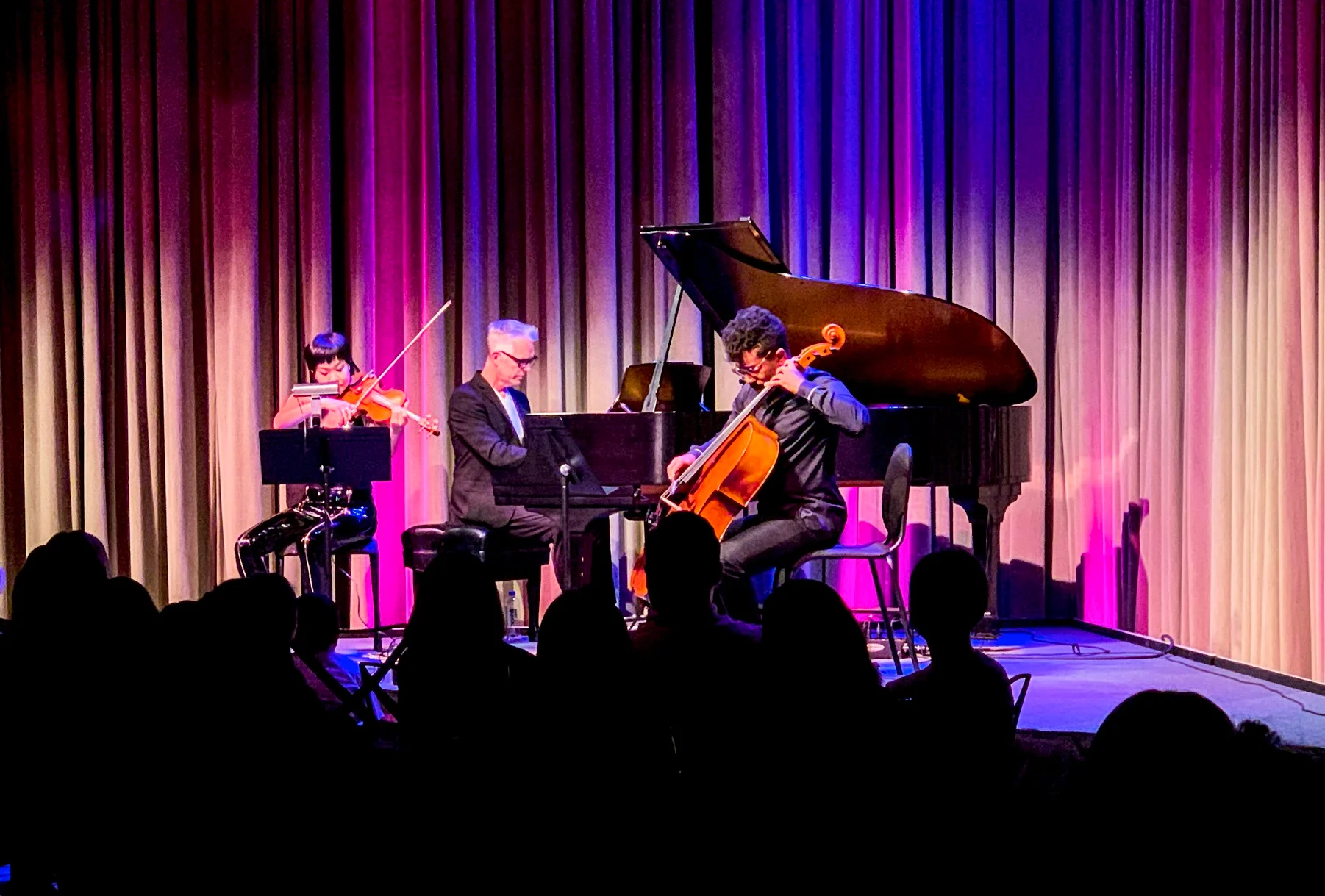
On Friday, Stanford Live welcomed pianist and composer Chad Lawson to the Bay Area. Alongside Lawson were cellist Seth Parker Woods and violinist Judy King. The serene ambiance of Bing Studio, dimly lit by hues of magenta and blue, coupled with Lawson’s intimate yet inclusive commentary, created an atmosphere of trust that made for a raw and touching performance.
Lawson has become known as the contemporary artist creating “classical music for the Spotify generation.” Today’s youth have been less exposed to classical music compared to past generations, and Lawson is one of several artists striving to foster a deeper understanding and appreciation of the genre by making it as approachable as possible.
His performance on Friday was reflective of this role, as he frequently separated his pieces with dialogue that dissected the musical and emotional undertones of each one. In his own rendition of a piece by Chopin, a composer that even a person with little exposure to classical music would recognize, he slowly scaled the six most memorable pitches from the melody down to two notes, creating a minimal yet recognizable tune.
Between pieces, the room filled with laughter and warmth as Lawson conversed with his audience about his musical background and the evening’s repertoire. Yet the instant he began to play, the pulsating rhythm of his signature gentle sound enveloped the studio in a blanket of calm. Just as he warmed audience members up to each piece with witty banter, Lawson subtly introduced layers of sound into the acoustics of the studio like drops of water rushing into a waterfall.
Lawson is a streaming star on Spotify whose 1 million monthly listener count trumps that of famous concert musicians like violin virtuoso Hilary Hahn and pianist Yuja Wang. His concert primarily featured pieces from his newest album, “breathe,” which is meant to be an invitation for us all to “exhale.” This sentiment extends to not only the past two years of the pandemic, but also any struggles from our past.
Throughout his career, Lawson has exhibited his talent as a composer to twist and stretch popular classical melodies or pop songs; his cover of “when the party’s over” by Billie Eilish has been streamed over 13 million times on Spotify. His interpretation of hardship, and how he entwines it into his music, has proved to be just as versatile. His message was that hardship can take many forms; moreover, his observation that it took us all an entire pandemic to “let go” and question all that we choose to carry every day was both relevant and validating.
Past these reckonings, Lawson ended his performance by inviting us all to stop and ask ourselves if we want to leave the pandemic with everything we took into it.
His final two pieces of the night, “Irreplaceable” and “To Hold the Stars in the Palm of your Hand,” used charming major chords to recognize the “people, places and experiences that we only were able to acknowledge and cherish” after the world was put on pause.
Through the selection of new pieces from his latest album, Lawson foreshadowed continued breakthroughs in a new field of classical music. Youth today with low exposure to the genre no longer have to settle for generic, empty playlists to act as background noise for them while they do their homework. With transparent communication about its stories and all their complexities, classical music does not have to be overshadowed by other genres like pop and hip-hop. Instead, as portrayed through Friday’s performance, this field can become the new face of contemporary music, where we can all ask ourselves the difficult questions about life and love that words can’t articulate.
Editor’s Note: This article is a review and includes subjective thoughts, opinions and critiques.